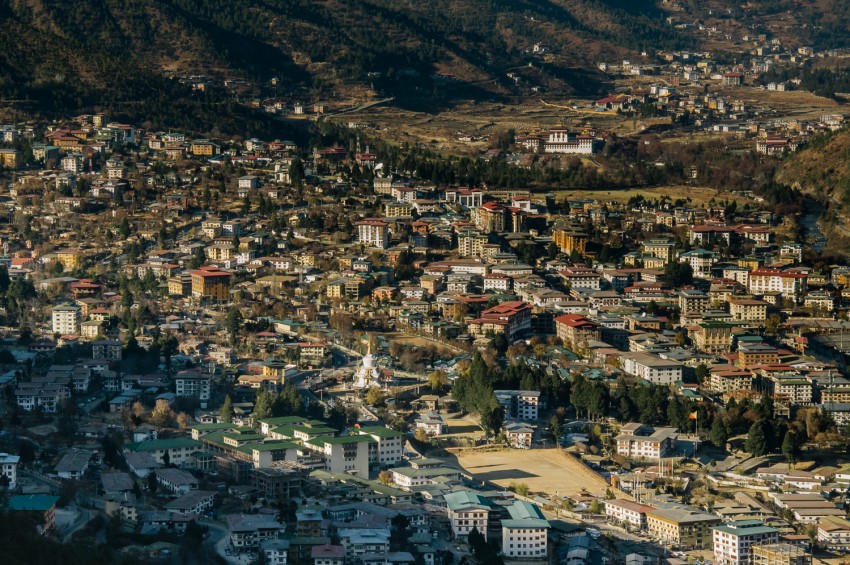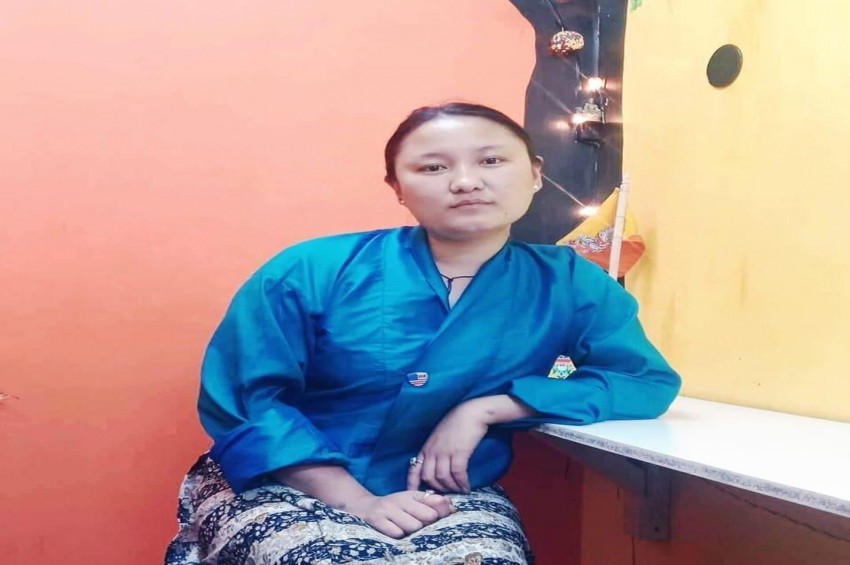In the former week’s issue, The Journalist had pointed out that Bhutan’s Property Tax, which is still based on the Taxation Policy of Bhutan 1992, needs to be amended. Annual housing tax of just Nu 100 per unit in Thimphu makes no sense at all. Looking from another lens, property owners in Thimphu and other urban areas have several advantages. Additionally, local governments and Thromdes, who have to depend on taxes collected too, lose a lot due to the prevailing Property Tax.
A simple example of benefits that property owners have is accessibility to loans from financial institutions. The Bank of Bhutan (BoB) gives 60 percent to 70 percent of the estimated costs for construction based on its commercial housing loan service. For Non Commercial housing loans, it is 80% of the building estimate and for renovation, 50% of the renovation cost.
Similarly, Bhutan National Bank (BNB) provides finance for construction, renovation and purchase of building/flat for commercial or residential purpose. For commercial housing loans of upto 50 million and more are provided. For home loans the loan to value (LTV) is 70 to 80 percent. BNB also provides Trade and Commerce Loan for business firms engaged in buying and selling of goods (retail and wholesale) and the Quantum is 60 to 70 % of the collateral value.
Rationally speaking, when financial institutions provide loans based on collaterals and their values, should the government not be following the same in collecting taxes? And even a slight increase will benefit the government and the people immensely.
According to the Gross National Happiness Commission (GNHC)’s 12th Five Year Plan manual, the total number of buildings in Thimphu was 6,190 (updated in the system as of Dec. 2018). The figure must have increased by now. While the document does not mention the number of units, based on which taxes are collected, assuming that all 6,190 buildings have 10 units each, the total tax paid is just Nu. 6,190,000 in one year, as the tax is just Nu 100 per unit per year.
Even if housing tax is increased to Nu 500 per unit per year, building owners with 10 units will be paying just Nu 5,000 annually. However, the total tax collected will increase substantially. Considering the same example provided above, Thimphu Thromde will be getting Nu 30,950,000 as tax from buildings. In-fact, a tax of even Nu 1,000 per unit per year is reasonable, for tax paid by owners with 10 units will be paying only Nu.10,000 a year, which is less than the monthly rent from just one unit. In this scenario, the total building tax collected by Thimphu Thromde would be Nu 61, 900,000, a sum that the Thromde can utilize for productive purposes.
While Thimphu has been taken as a sample, Property Tax revision should be done in all parts of Bhutan, urban and rural. And the responsibility to do this falls on the government and the parliament. The Local Government Act 2009, Article 57, says: Gewog Tshogdes shall, at such rates as may be approved by Parliament, levy following taxes: Land tax, Building tax and other taxes. Similarly, the Act says that Thromde Tshogde may levy the following in a manner and at such rates as may be approved by Parliament: land tax; property tax and others.
Thus, the responsibility falls on the parliament and it is disappointing to see that three parliaments (with one just having one year more tenure) were either unaware or turned a blind eye to this very important issue.
Rural taxes need to be amended, too. Annual taxes per year/per acre are Nu. 24 per, Nu 12 and Nu 1 for wet land, dry land and bamboo and khar, respectively. Orchard land tax (apples, oranges, cardamom) is only Nu 12 per acre/year. Housing tax is Nu 20 per annum for permanent houses and Nu. 10 per annum for semi permanent houses.
These are also some of the reasons making Bhutan a country with people who are kidu dependent. Policy makers in 1992 would have made the Taxation Policy based on the factors and milieu of the time. Three decades down and we have progressed as a country. While there may be some who are very poor and underprivileged, Bhutanese farmers have progressed too, and are now capable to pay more than what they could in 1992.
In all fairness, the current government deserves credit for at least attempting to revise the Property Tax. Lyonpo Namgay Tshering, the finance minister had told the media about it; on introducing the Property Tax Act, which will include a value-based taxation policy, that would resolve ambiguities and biases that come from the Revised Taxation Policy 1992.
Sources say that extensive meetings and workshops were held with the Finance Minister determined to table the Property Tax Act in the parliament. However, it just fizzled out. It is unclear if the Finance Minister was the solitary protagonist of this much required revision or if the proposed revision was buried under papers related to other important issues, such as the COVID 19 pandemic. Nonetheless, Property Tax should be revised; if not for any other reasons, because of the fact that it is irrational, a mortification and the rotten apple in a box of fresh delicious apples.
A simple example of benefits that property owners have is accessibility to loans from financial institutions. The Bank of Bhutan (BoB) gives 60 percent to 70 percent of the estimated costs for construction based on its commercial housing loan service. For Non Commercial housing loans, it is 80% of the building estimate and for renovation, 50% of the renovation cost.
Similarly, Bhutan National Bank (BNB) provides finance for construction, renovation and purchase of building/flat for commercial or residential purpose. For commercial housing loans of upto 50 million and more are provided. For home loans the loan to value (LTV) is 70 to 80 percent. BNB also provides Trade and Commerce Loan for business firms engaged in buying and selling of goods (retail and wholesale) and the Quantum is 60 to 70 % of the collateral value.
Rationally speaking, when financial institutions provide loans based on collaterals and their values, should the government not be following the same in collecting taxes? And even a slight increase will benefit the government and the people immensely.
According to the Gross National Happiness Commission (GNHC)’s 12th Five Year Plan manual, the total number of buildings in Thimphu was 6,190 (updated in the system as of Dec. 2018). The figure must have increased by now. While the document does not mention the number of units, based on which taxes are collected, assuming that all 6,190 buildings have 10 units each, the total tax paid is just Nu. 6,190,000 in one year, as the tax is just Nu 100 per unit per year.
Even if housing tax is increased to Nu 500 per unit per year, building owners with 10 units will be paying just Nu 5,000 annually. However, the total tax collected will increase substantially. Considering the same example provided above, Thimphu Thromde will be getting Nu 30,950,000 as tax from buildings. In-fact, a tax of even Nu 1,000 per unit per year is reasonable, for tax paid by owners with 10 units will be paying only Nu.10,000 a year, which is less than the monthly rent from just one unit. In this scenario, the total building tax collected by Thimphu Thromde would be Nu 61, 900,000, a sum that the Thromde can utilize for productive purposes.
While Thimphu has been taken as a sample, Property Tax revision should be done in all parts of Bhutan, urban and rural. And the responsibility to do this falls on the government and the parliament. The Local Government Act 2009, Article 57, says: Gewog Tshogdes shall, at such rates as may be approved by Parliament, levy following taxes: Land tax, Building tax and other taxes. Similarly, the Act says that Thromde Tshogde may levy the following in a manner and at such rates as may be approved by Parliament: land tax; property tax and others.
Thus, the responsibility falls on the parliament and it is disappointing to see that three parliaments (with one just having one year more tenure) were either unaware or turned a blind eye to this very important issue.
Rural taxes need to be amended, too. Annual taxes per year/per acre are Nu. 24 per, Nu 12 and Nu 1 for wet land, dry land and bamboo and khar, respectively. Orchard land tax (apples, oranges, cardamom) is only Nu 12 per acre/year. Housing tax is Nu 20 per annum for permanent houses and Nu. 10 per annum for semi permanent houses.
These are also some of the reasons making Bhutan a country with people who are kidu dependent. Policy makers in 1992 would have made the Taxation Policy based on the factors and milieu of the time. Three decades down and we have progressed as a country. While there may be some who are very poor and underprivileged, Bhutanese farmers have progressed too, and are now capable to pay more than what they could in 1992.
In all fairness, the current government deserves credit for at least attempting to revise the Property Tax. Lyonpo Namgay Tshering, the finance minister had told the media about it; on introducing the Property Tax Act, which will include a value-based taxation policy, that would resolve ambiguities and biases that come from the Revised Taxation Policy 1992.
Sources say that extensive meetings and workshops were held with the Finance Minister determined to table the Property Tax Act in the parliament. However, it just fizzled out. It is unclear if the Finance Minister was the solitary protagonist of this much required revision or if the proposed revision was buried under papers related to other important issues, such as the COVID 19 pandemic. Nonetheless, Property Tax should be revised; if not for any other reasons, because of the fact that it is irrational, a mortification and the rotten apple in a box of fresh delicious apples.















